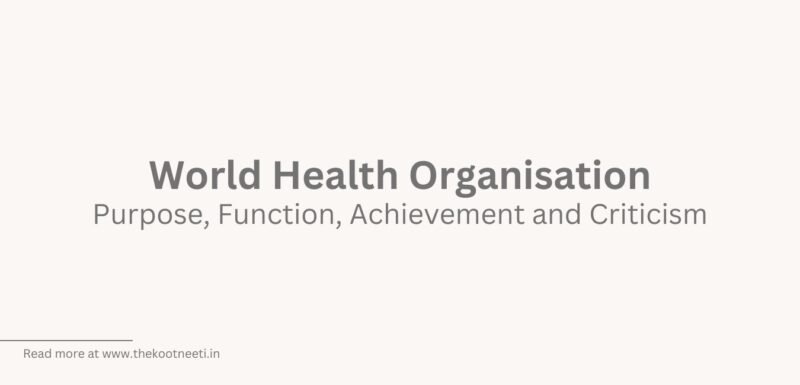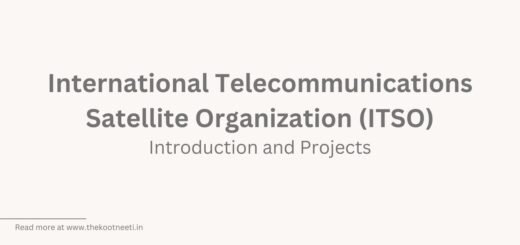World Health Organisation: Purpose, Function, Achievement and Criticism

The World Health Organization (WHO) is a specialized agency of the United Nations that is responsible for international public health. Its main objective is to build a better, healthier future for people all over the world.
Why it was formed?
The need for a global health organization like the World Health Organization (WHO) became apparent in the aftermath of World War II, as the world grappled with the devastating health consequences of the war and the emergence of new and deadly diseases. In 1948, the WHO was established as the specialized agency of the United Nations responsible for international public health.
Since then, WHO has played a vital role in promoting and protecting the health of people around the world. It has led the way in controlling and eliminating infectious diseases, such as smallpox, and has worked to improve access to quality health services for people in low- and middle-income countries. WHO’s expertise and resources have been essential in responding to global health crises, such as the ongoing COVID-19 pandemic.
The organization continues to work towards a vision of universal health coverage, where everyone, everywhere can access the health services they need without financial hardship. In this way, WHO has and continues to play a vital role in improving the health and well-being of people around the world.
Key Functions
- Providing leadership on global health matters, shaping the health research agenda, setting norms and standards, articulating evidence-based policy options, providing technical support to countries and monitoring and assessing health trends.
- Providing technical assistance to countries and other partners to help build stronger health systems and improve access to quality health services.
- Working to control and eliminate transnational health threats, such as infectious diseases, and to strengthen health systems in countries affected by crisis and conflict.
- Collaborating with other UN agencies, international organizations, and partners to achieve common health-related goals and to support the implementation of the Sustainable Development Goals.
Major Achievements:
- Eradication of smallpox: WHO led the global effort to eradicate smallpox, which was declared eradicated in 1980.
- Control of infectious diseases: WHO has played a key role in controlling and preventing the spread of infectious diseases such as polio, malaria, and HIV/AIDS.
- Immunization programs: WHO’s immunization programs have helped to increase vaccination coverage and reduce the number of deaths from vaccine-preventable diseases.
- Health education and promotion: WHO’s health education and promotion programs have helped to increase awareness of important health issues and improve overall health outcomes.
- Emergency response: WHO is known for its quick response in emergency situations, such as natural disasters and outbreaks of infectious diseases.
- Support to countries: WHO provides technical support to countries to help them strengthen their health systems and improve the overall health of their populations.
- Research: WHO conducts and coordinates essential research to improve global health and to strengthen the evidence base for health policies and programs.
Major criticisms:
- Funding: WHO has been criticized for its reliance on funding from member states and external donors, which can affect its independence and ability to make impartial decisions.
- Bureaucracy: WHO has been criticized for its bureaucracy and slow decision-making processes, which can delay the implementation of important health initiatives.
- Response to pandemics: WHO has faced criticism for its response to pandemics such as COVID-19, including its initial handling of the outbreak in Wuhan and its communication with member states and the public.
- Political influence: WHO has been criticized for allowing political influence to affect its decisions and actions, particularly regarding sensitive issues such as tobacco control and access to essential medicines.
- Lack of transparency and accountability: WHO has been criticized for lack of transparency and accountability in its operations, which can hinder public trust in the organization.
- Inadequate support to low-income countries: WHO has been criticized for not providing adequate support to low-income countries, particularly in terms of funding and capacity-building, to address public health issues.
It is important to note that WHO is a global organization that works under the guidance of its Member States and often with limited resources. Therefore, it is not able to address all the health issues and criticisms it faces.


















